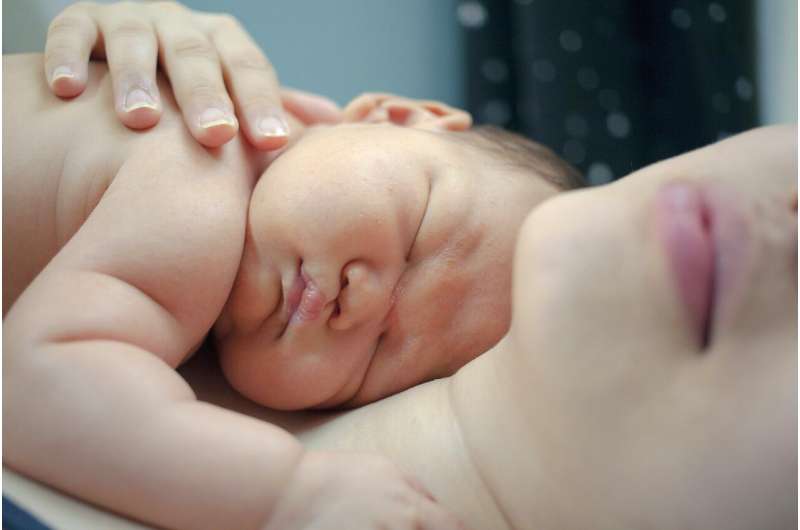
A single low dose injection of esketamine given immediately after childbirth reduces major depressive episodes in individuals with depressive symptoms during pregnancy (prenatal depression), finds a clinical trial published by The BMJ today.
The results suggest that low dose esketamine should be considered in new mothers with prenatal depressive symptoms.
Depression is common during pregnancy and shortly after giving birth and can have several adverse effects on new mothers and their infants.
Esketamine is made from a drug called ketamine. It’s used as an anesthetic and to treat depression, yet the effect for mothers with perinatal depression is unclear.
To examine this further, researchers based in China and the U.S. wanted to find out if a single low dose injection of esketamine given just after childbirth might reduce subsequent depression in mothers with pre-existing prenatal depression.
Their findings are based on 361 mothers (average age 32 years) enrolled from five Chinese hospitals from June 2020 to August 2022 with no medical history of depression and no diagnosis of depression in pregnancy, but who had scores on a scale consistent with mild prenatal depression and were preparing for childbirth.
None of the participants had severe pregnancy complications, or any condition that meant they couldn’t be given esketamine.
Information on factors including age, weight (BMI), education level, family income and existing health conditions was recorded at the start of the trial and participants were randomly assigned to either esketamine or placebo intravenously infused over 40 minutes after childbirth.
Participants were interviewed 18 to 30 hours after giving birth and again at 7 and 42 days.
Major depressive episode was diagnosed with the Mini-International Neuropsychiatric Interview at 42 days. Depression was also assessed using the Edinburgh depression score at 7 and 42 days, and the Hamilton Depression Rating Scale score at 42 days. No participant took antidepressants or received psychotherapy during the follow-up period.
At 42 days after giving birth, 12 of 180 (6.7%) of mothers given esketamine experienced a major depressive episode compared with 46 of 181 (25.4%) of those given placebo (a relative risk reduction of about three-quarters).
As expected, mothers given esketamine had lower Edinburgh depression scores at 7 and 42 days, and a lower Hamilton depression score at 42 days.
Based on these figures, the researchers estimate that, for every five mothers given esketamine, one major depressive episode would be prevented.
More neuropsychiatric adverse events such as dizziness and diplopia (double vision) occurred with esketamine (45% v 22%). However, symptoms lasted less than a day and none needed drug treatment.
The researchers acknowledge that excluding mothers with pre-pregnancy mood disorders may have affected the validity of their results, and the short follow-up period may have led to under-reporting of neuropsychiatric symptoms and other adverse events.
What’s more, most participants had only mild prenatal depressive symptoms, so it’s unclear whether esketamine is equally effective in those with more severe depressive symptoms.
Nevertheless, they conclude that for mothers with prenatal depressive symptoms, a single low dose of esketamine given shortly after childbirth decreases major depressive episodes at 42 days postpartum by about three quarters.
These results are generally consistent with previous work investigating the effects of low dose ketamine or esketamine on postpartum depression, mainly in mothers after cesarean delivery, and, importantly, the researchers say their trial “extends existing understanding by targeting women with pre-existing prenatal depression, who were therefore at high risk of postnatal depression.”
As such, they conclude that low dose esketamine should be considered in mothers with symptoms of prenatal depression.
More information:
Efficacy of a single low dose of esketamine after childbirth for mothers with symptoms of prenatal depression: randomised clinical trial, The BMJ (2024). DOI: 10.1136/bmj-2023-078218
Citation:
Study finds esketamine injection just after childbirth reduces depression in new mothers (2024, April 10)
retrieved 10 April 2024
from https://medicalxpress.com/news/2024-04-esketamine-childbirth-depression-mothers.html
This document is subject to copyright. Apart from any fair dealing for the purpose of private study or research, no
part may be reproduced without the written permission. The content is provided for information purposes only.


